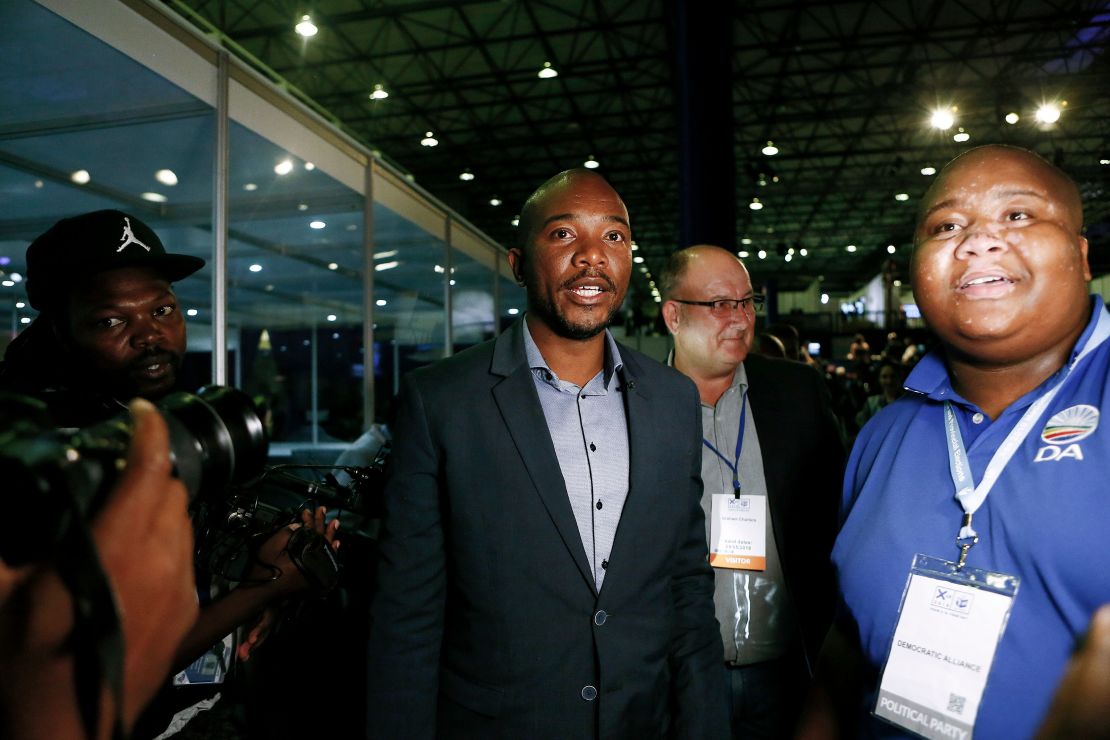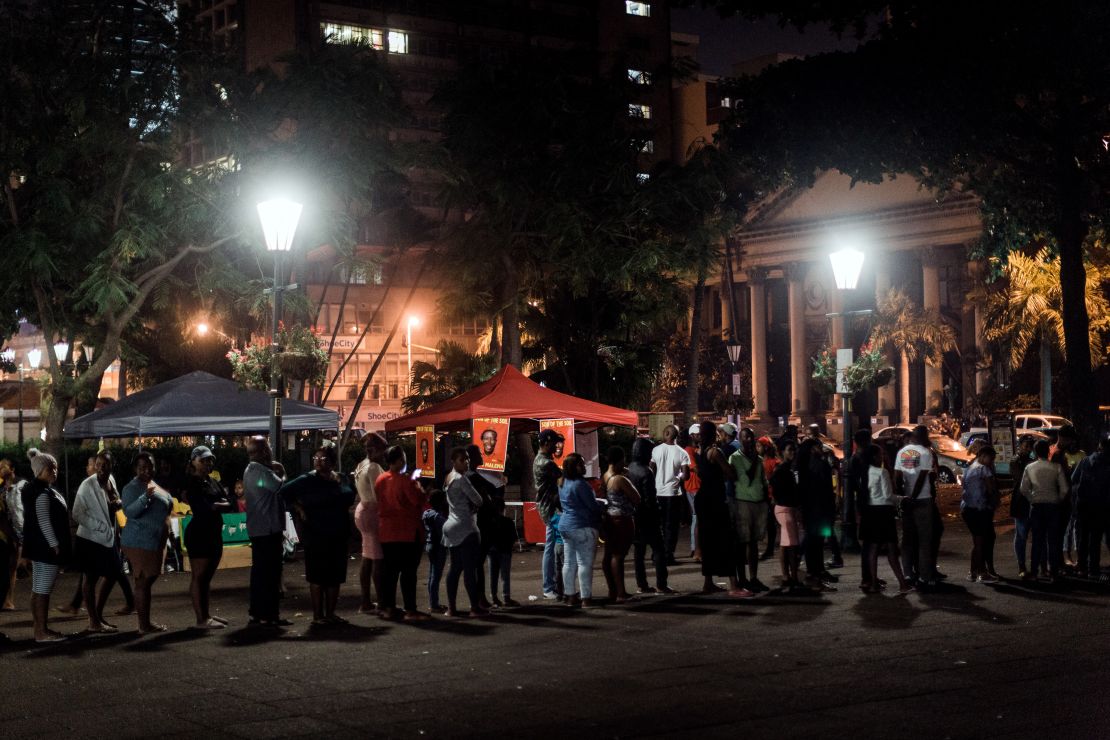Despite years of corruption allegations, a sluggish economy and sustained electricity blackouts, South Africa’s ruling ANC looks set to win a substantial majority in a critical national election.
With more than 90% of the vote counted, the ANC shows a strong lead with just over 57% of the national vote, according to partial results released by the country’s electoral commission.
While the ruling party looks set to maintain its grip on power for the next five years, the results show that voter support for the ANC – the party of Nelson Mandela – which has governed since the fall of apartheid in the mid-1990s, is dwindling. The falling support means that it will be harder for the weakened party to enact its agenda – including bolstering the flagging economy.
The party looks set to dip below the psychological barrier of 60% support – since the end of the apartheid regime in 1994, the ANC’s share of votes in national elections has never fallen below 60%, according to the commission.
In the previous election, in 2014, the ANC won with 62% of voter support. The election year before that – 2009 – the party won 66% of the vote. In 2004, it got close to 70% of the vote.
The partial results show the main opposition party, the Democratic Alliance (DA), trailing with just under 21% of the vote – at this stage, its support looks to remain flat – a disappointing result for the official opposition.
Turnout dropped significantly in this election, reflecting a general voter apathy toward political parties and their promises. While the turnout of around 65% would be the envy of many democracies, it does show a sharp decrease in enthusiasm for voting. In 1999, turnout was just shy of 90%.

The election has not been without its hitches. The commission on Thursday said that several people were arrested for attempting to vote twice. The commission said it would hold a random audit of certain polling stations to gauge the problem.
DA leader Mmusi Maimane, speaking to the press Thursday, asked for a “full audit” of the vote, claiming some voter fraud.
“We have concerns about the electoral process and how some of the issues have been handled; I’m concerned that many South Africans were able to vote twice and therefore our call for an audit is still an important one because we think that needs to be interrogated.”
He said he didn’t support a re-run of the vote “at this stage.”
Official results are expected Saturday.
Disillusioned electorate
Voters went to the polls at almost 23,000 polling stations across the country on Wednesday, with ANC leader President Cyril Ramaphosa promising to crack down on corruption in the party, following years of corruption scandals associated with his predecessor Jacob Zuma’s time in office.
But the ANC faces widespread apathy among voters born after apartheid, known as the “born-free” generation, with millions who failed even to register to vote.
The Economic Freedom Fighters’ (EFF) leader Julius Malema, a charismatic leftist candidate who pledged to accelerate land appropriation as a tool to redress widespread inequality, was able to capitalize on anger generated by daily headlines alleging corruption in the highest echelons of power.
The EFF is currently running third, with just over 10% of the vote.
Mirroring the gains of the EFF, at the other end of the political spectrum, the Freedom Front Plus party gained from an almost negligible showing in 2014 to show significant growth. The FF Plus has mostly catered to Afrikaner voters concerned with the land issue. Its slogan was slaan terug, or “hit back.”

But for many voters, disillusionment with the political system can be traced to the continued inequality that South Africans face, despite the country being one of the richest on the African continent.
Despite 25 years of equal rights under the law, a recent World Bank survey showed that the country is the most unequal in the world, with South Africa’s richest households almost 10 times wealthier than poor households.
Despite the rise of a black middle class, much of the disparity falls along racial lines – the legacy of apartheid’s racist legislation.
Previously disadvantaged South Africans hold fewer assets, have fewer skills, earn lower wages, and are still more likely to be unemployed, a 2018 World Bank report on poverty and inequality in South Africa found. And, at the other end of the spectrum, an elite, mainly white minority continues to thrive.
“When did we get our freedom, 1994? All of these years with promises all the way. No man. A lot of black folks are still suffering,” said Wilson Mnenbe, a 24-year-old fashion designer in Johannesburg’s central business district.








